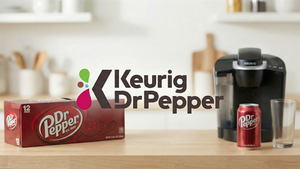Washington, D.C., Oct. 22, 2025 (GLOBE NEWSWIRE) -- In recent months, news stories have covered the harms of kratom, the FDA has taken steps toward banning certain forms of it, some states are considering outlawing it, and the FDA commissioner sent a warning letter about the substance to clinicians. A new poll from the American Psychiatric Association finds only 19% of Americans are familiar with this dangerous substance, sometimes referred to as “gas station heroin.”
In the United States kratom is sold as capsules, tonic beverages, or pressed tablets. These products contain increasingly concentrated forms of kratom’s principal naturally occurring opioid molecules, mitragynine and 7-hydroxymitragynine (“7-OH”). This is analogous to the opium poppy plant, where increasingly concentrated forms of its naturally occurring opioid molecules give rise to heroin. Animal studies have found that rodents are unable to tell the difference between morphine and 7-OH*. While the FDA has recently announced early steps toward federal regulation, the kratom and derivatives remain widely available in the United States, with varying state-level regulation.
The poll also asked about familiarity with other unregulated substances marketed for mental health purposes, including kava, blue lotus, wild lettuce, salvia divinorum, Mugwort and Yohimbe. Less than 8% of those polled were very familiar with any of these.
"It’s alarming that substances with addictive potential such as kratom are widely available and sold in convenience stores,” said APA President Theresa M. Miskimen Rivera, M.D. “I recommend that you never take any substance without talking to a doctor. Too many of these so-called supplements on the market can pose serious health risks. When in doubt, your doctor can help you determine if a substance is safe to take and if it interferes with any other treatments you’re taking.”
The data comes from APA’s Healthy Minds Poll, fielded online by Morning Consult Aug. 30-Sept. 1, 2025, among a sample of 2,200 adults in the United States.
More than 1/3 of Americans Know Someone with an Addiction
When asked about substance use disorders, one in three (35%) Americans reported that they know or suspect they know someone with addiction, and 73% think they would be able to get help for a friend or family member with addiction. Specifically:
-
- 75% would refer them to addiction recovery treatment.
- 76% would have a conversation with them.
When seeking help for a friend or family member with an addiction, Americans said they’d consider reaching out to a doctor or medical professional (56% selected), family (47%), local community resources (41%), friend (35%), online resources (30%), church/clergy (19%), social media (10%), university/school (4%), or another source (3%). 10% indicated that they either didn’t know or had no opinion.
Support for Naloxone
When asked whether it was important for the federal government to ensure that naloxone, nalmefene, and other life-saving medications for opioid overdose are widely available, nearly 80% of Americans said it was important (55% said very important; 23% said somewhat important). A majority of adults across partisanship agreed. (Learn more about Opioid Use Disorder and Preventing Overdose here.)
“Mental health is a bipartisan issue, and we stand ready to work with legislators on both sides of the aisle to develop and implement critical policy solutions that our nation desperately needs,” said APA CEO and Medical Director Marketa M. Wills, M.D., M.B.A. “There are opportunities to partner in a non-partisan manner to advance evidence-based solutions that support those who need help to escape the crippling grip of substance use disorders.”
* Harun, Norsyifa, et al. "Discriminative stimulus properties of mitragynine (kratom) in rats." Psychopharmacology 232.13 (2015): 2227-2238.
American Psychiatric Association
The American Psychiatric Association, founded in 1844, is the oldest medical association in the country. The APA is also the largest psychiatric association in the world with more than 39,200 physician members specializing in the diagnosis, treatment, prevention and research of mental illnesses. APA’s vision is to ensure access to quality psychiatric diagnosis and treatment. For more information, please visit http://www.psychiatry.org/

Erin Connors American Psychiatric Association 202-609-7113 econnors@psych.org




